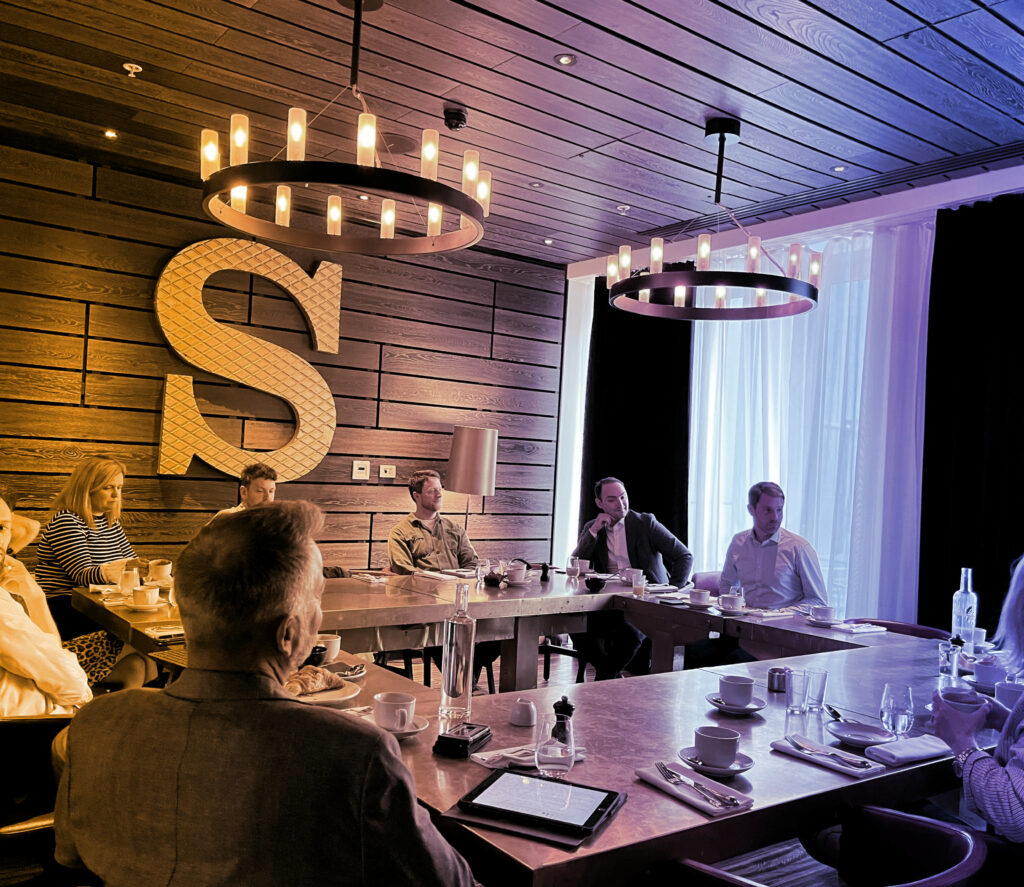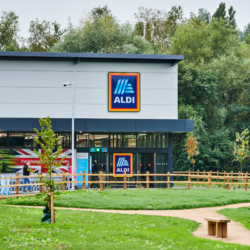Retailers meet to discuss how to better engage, motivate, and develop the workforce – and drive better cross-department communication that drives commercial success.
For organisations – including retailers – to achieve operational excellence they need to enable all employees to perform well, allow staff to learn, grow, and prepare for future roles, and create an environment that motivates, engages, and is inclusive.
These were some of the key findings revealed in a new report by RedThread Research with workforce enablement solution Axonify, which identified where work is required for businesses to improve in these areas, despite a post-pandemic focus on this historically underserved group.
It was also a key topic at a Retail Gazette roundtable, held on 1 June at Seacontainers in London. The roundtable, run in partnership with Axonify, was attended by representatives from companies including AllSaints, Co-op Food, Currys, GuitarGuitar, Lidl, and Pret a Manger.
The in-depth discussion identified examples of encouraging staff engagement work going on in retail, but it also highlighted common challenges and many existing gaps as the industry looks to become a more attractive sector to work in.
The challenges
There was general agreement among the roundtablers that engaging and developing the retail workforce, and retaining and motivating staff, is a particular challenge in 2023.
Indeed, industry charity the Retail Trust suggests 70% of staff interviewed for its 2023 study into workplace wellbeing have experienced a deterioration in their mental health over the last 12 months.
According to the report, junior line managers were identified as a particularly pressured part of the workforce, with one in four of them keen to leave the industry due to lack of support and a feeling of disconnection within their businesses.
The 500 frontline workers and 50 business leaders from across different industries surveyed as part of the RedThread research also identified much room for improvement in areas such as making information about workers’ jobs more easily accessible and giving staff greater autonomy in their roles.
Recognising the job frontline workers do, and providing more development opportunities – and improving interdepartmental communication – were also highlighted in the report as vital to driving operational excellence in business.
“Learning and development (L&D) people haven’t run out of ideas; we’ve run out of L&D people to work on these areas,” said one roundtable attendee.
Efficiency drives have swung through much of retail in recent years, and many organisations are looking to do more with fewer people in their teams. Subsequently, the roundtable attendees suggested, it is often difficult to understand what training is needed for those on the frontline and who is best placed to offer it.
Training is regularly still conducted in classrooms and not necessarily a progressive part of retailers’ business operations, and there was consensus in the room that when everything L&D-related is all on the shoulders of store managers, “it can cause problems”.
One retailer said it is a common situation to have to “force” training on people, who ultimately do not see the benefit of it. Another retailer said they would truly gain from having one single platform for L&D, staff engagement, staff events and general communications.
Molly Dobson, general manager for Currys Business, explained: “Teaching people about becoming a manager is a challenge. It is also difficult for most organisations to capture training needs in the moment.”
Talking more widely about staff engagement and needs, Dobson added that each part of a large business such as Currys will have different motivations. “Store, head office, and support function all want and need something different,” she said.
The concept of “continuously listening to staff” was touted by one event guest as crucial if retailers are to make progress and become more attractive places to work, as was creating opportunities to progress throughout the business.
“When general managers move into L&D, it helps bridge the gap between head office and the frontline and can really improve training,” said one attendee.
“Bitesize learning connected to operations is important as opposed to creating ‘learning events’.”
Another retailer agreed with the Retail Trust research. “Junior line managers are our biggest area of neglect when it comes to training, development, and support,” they admitted, adding it has been identified as an area of improvement in their organisation.
The way forward
When asked what their individual areas of focus will be in the coming months, the delegate responses varied from recognition to being more vocally and visibly associate-focused.
One retailer said they need to “make a much better job of celebrating success,” acknowledging it has been an area that has been disregarded for some time as the business has grown.
Steve Constable, head of operations at the Co-op for its London stores, said: “At Co-op, we work to support and put our colleagues first, and within our organisation employee wellbeing and investment in colleagues is a key priority.
“There are a wide range of benefits, including financial aids to support with the cost of living and people development opportunities, such as funding for degrees. It is important that we work to ensure that these wide-ranging additional benefits are well-communicated to our colleagues.”
Dobson suggested retailers that want to achieve or maintain a successful edge need to lean into the current challenging and competitive environment. “There’s no panacea to make improvements in this difficult industry landscape, but we as an industry need to look at how we can enable our people to be ‘scrappy’ and help us compete,” she explained.
Elsewhere, one retailer remarked that improving cross-functional collaboration was a key target, arguing that “very few things are solved in silos.”
For Robert Simpson, operations director at GuitarGuitar, employee engagement is an area that always requires work and attention. The company has started running regular conferences for its managers, but it is now looking at opening those events up to the “next tier of management” to “increase connectivity” to the business.
Talking more broadly about staff engagement, he argued: “You can have the best of intentions but there are always other problems that crop up and distract you. We need to engage with our staff more continuously, to help build a stronger working environment and employee ownership mindset and culture.”
Alastair Watts, vice president for UK, Ireland and Europe at Axonify, who took part in the roundtable discussion, said retailers are at a tipping point where associate enablement and technology can offer solutions.
“Much of the new learning and development ideas are coming from retail operations, with people at this level recognising and adopting new training methods, ways of working, and means of communication in the field.”
Watts added: “Retailers should identify the change agents they have in their midst, be that in their stores or in operations, and empower them to develop and engage the wider workforce. Technology can help with this, too, aligning all levels of an organisation to common and transparent goals while also giving frontline workers the autonomy to self-serve and map their own path within their company.”
Click here to download and read ‘Getting Real About the Frontline Workforce’ report
Click here to sign up to Retail Gazette‘s free daily email newsletter


















